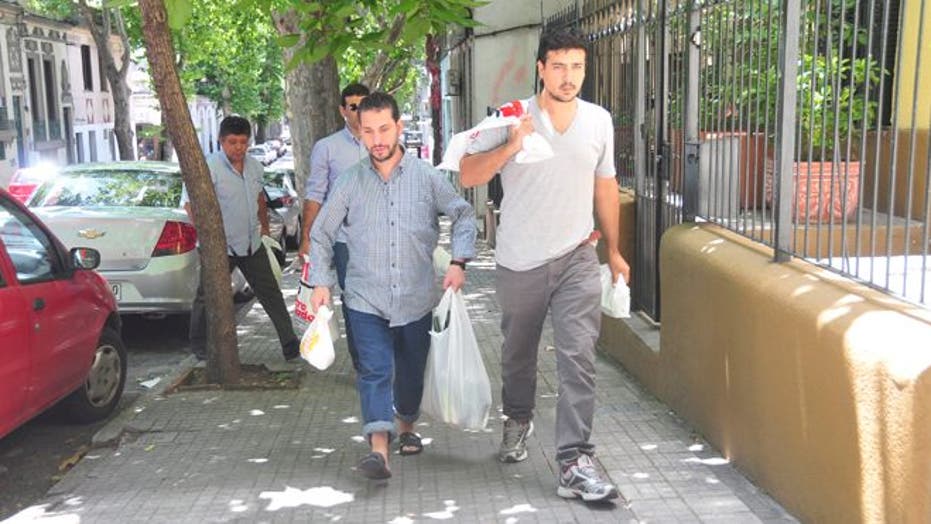MONTEVIDEO, Uruguay (AP) – Uruguay's foreign minister said Monday that six former Guantanamo Bay detainees resettled here will be out of a house and off public assistance unless they agree to terms they have so far rejected, the latest in an increasingly public battle over who is financially responsible for the men and for how long.
Foreign Minister Rodolfo Nin Novoa made the statements to reporters as four of the men kept up a protest in front of the U.S. Embassy that they began Friday, spending the nights with sleeping bags.
The agreement drawn up by a local agency that works with the United Nations High Commissioner for Refugees promises the men free private housing through February 2016 and a continuation of the monthly stipend of $600 (15,000 pesos) that they have been receiving since arriving.
"If they don't sign, they won't receive any income," Nin Novoa said.
Five of the six have refused to sign, saying the Uruguayan government promised more help with housing than stipulated in the agreement. They also complain that the government wants them to pay taxes out of their stipend, which they say already isn't enough to cover all their costs, and demand the U.S. government help since they spent a dozen years in prison and were never convicted of any crime.
"We will stay (in front of the embassy) until we have solutions to our problems," Ali Husain Shaaban told The Associated Press. "We want our rights. Nothing more, nothing less."
Shaaban, from Syria, says Nin Novoa told them in a recent private meeting that as political refugees they would be provided for as long as they were in Uruguay.
Nin Novoa said that was a misunderstanding, possibly because of a bad translation.
"They thought the agreement would be for three years when it's really for one year," said Nin Nova, though he added that the country would continue helping them when the agreement expired but didn't say how.
The men, who allegedly had ties to al-Qaida, spent more than 12 years in Guantanamo before being released to Uruguay in December, and argue America should help them, as well. They are demanding to meet with the U.S. ambassador in Uruguay.
As a humanitarian gesture, then-President Jose Mujica invited the men to resettle in this South American country of 3.3 million people.
The four Syrians, one Tunisian and one Palestinian have been housed in a four-bedroom house in Uruguay's capital since the government took them in. But a few of the men, such as Adel bin Muhammad El Ouerghi, from Tunisia, began staying at a budget hotel a few months ago to have more privacy.
The government had been picking up the hotel tab, but after refusing to sign the agreement, El Ouerghi says he was told he would have to pay himself.
The U.N. agency "doesn't treat us like humans. They treat us like terrorists," El Ouerghi told the AP.
The regional office of the U.N. High Commissioner for Refugees, based in Buenos Aires, Argentina, declined comment. The U.S. embassy in Montevideo didn't immediately return messages seeking comment.
The men's arrival here was greeted with much fanfare. But photo ops and colorful declarations about their love for soccer quickly turned to controversy and complaints. In February, many Uruguayans were angered upon learning the men had refused to accept jobs offered to them. They men say they were still recovering from their time in Guantanamo and are not yet capable of working.
President Tabare Vazquez, who took office March 1, has argued the U.S. government should help shoulder the burden of providing for the men.
Indeed, Nin Novoa said Monday that the foreign office would help the men write a letter to the U.S. government detailing their complaints and demands.







































